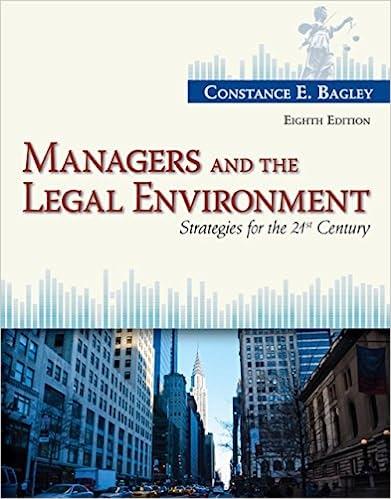In 1960, Brown & Bryant, Inc. (B&B) began operating an agricultural chemical distributions business, purchasing pesticides and
Question:
In 1960, Brown & Bryant, Inc. (B&B) began operating an agricultural chemical distributions business, purchasing pesticides and other chemical products from suppliers, including Shell Oil Company. When a certain chemical bought from Shell would arrive at B&B's warehouse in tanker trucks, it was transferred from the trucks to a bulk storage tank located on B&B's primary parcel. From there, the chemical was transferred to other trucks, tanks, and rigs. During each of these transfers, leaks and spills could-and often did-occur.
Aware that spills of the chemical were occurring frequently among its distributors, in the late 1970s Shell took several steps to encourage the safe handling of its products. Despite these improvements, B&B remained a "sloppy operator." In 1983, a state agency began investigating B&B's violation of hazardous waste laws, and the EPA soon followed suit. To recoup cleanup costs, the EPA filed suit against several parties, including Shell. The EPA argued that Shell was an "arranger" subject to liability under CERCLA because it had arranged for the disposal of hazardous substances through its sale and delivery, even though it did not "intend" to dispose of a hazardous substance. Does the EPA have a valid argument? Is mere knowledge that spills and leaks occurred sufficient grounds for concluding that Shell "arranged for" the disposal of the chemical under CERCLA?
Step by Step Answer:

Managers And The Legal Environment Strategies For The 21st Century
ISBN: 9781285860374
8th Edition
Authors: Constance E. Bagley





